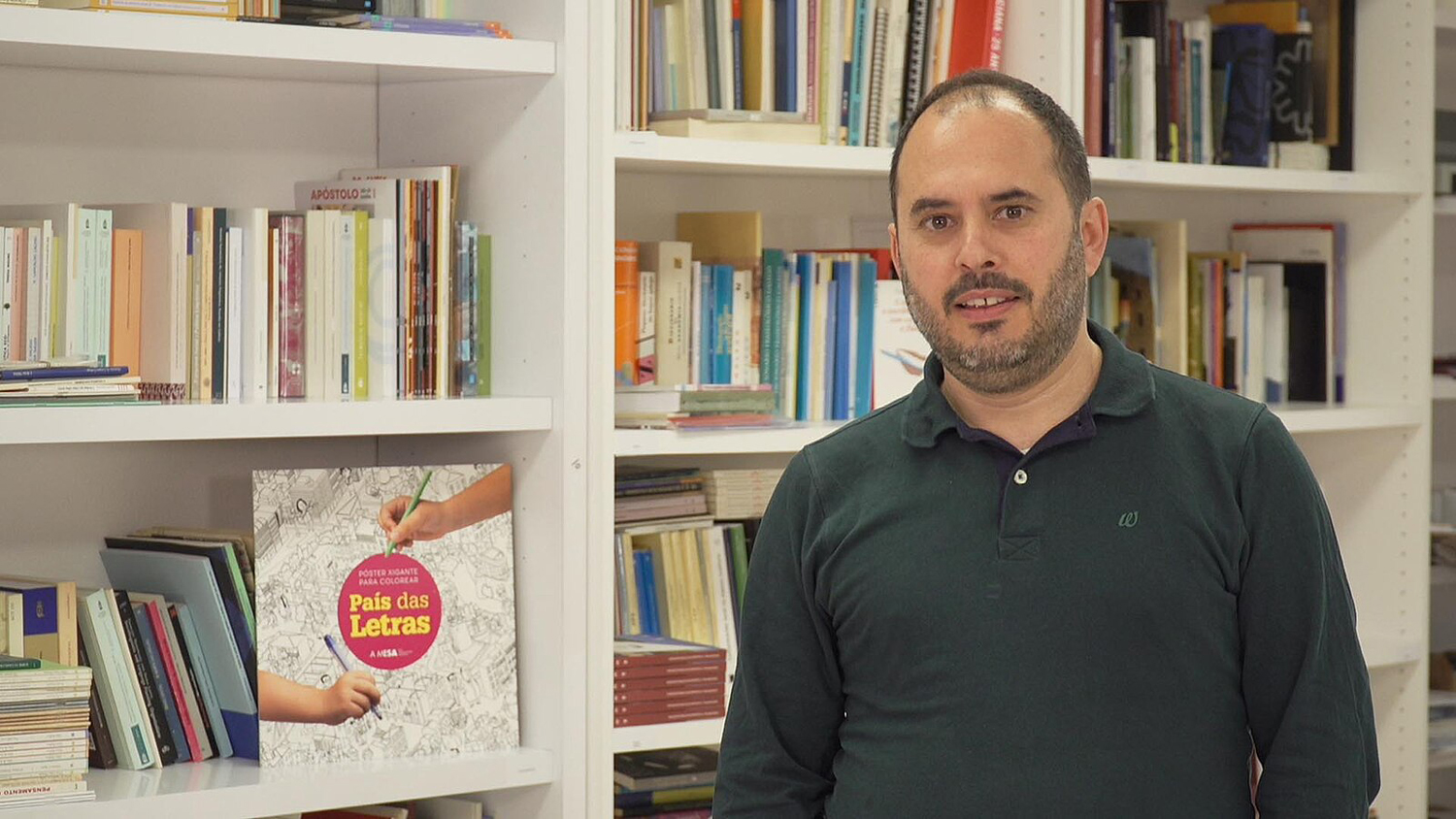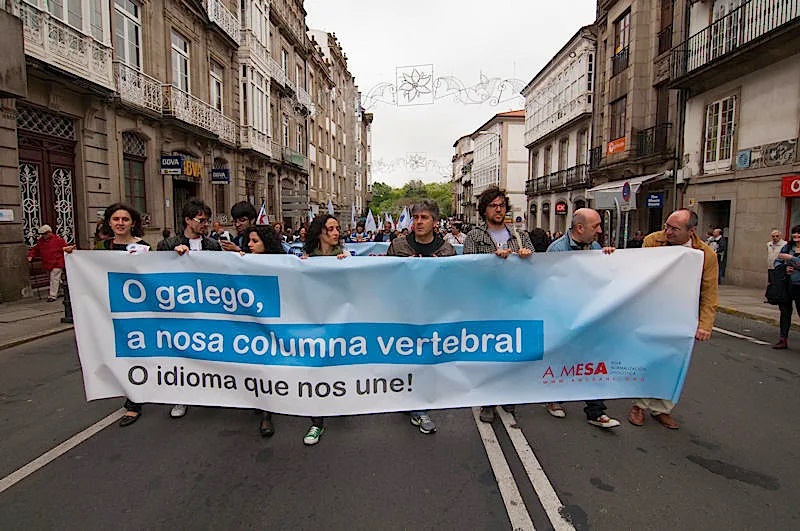“It will be very difficult to reverse the Galician if the linguistic policy of the PP is not corrected”
- The Galician Institute of Statistics (INE) has released the latest data from the Galician survey. Knowledge and use have regressed. The loss is higher in younger age groups. A third of the population aged 5-14 has declared that they know little or nothing about Galician. We interviewed Marcos Maceira, president of Linguistic Normalization A Mesa.

He has considered the latest data to be catastrophic.
We had been warning for a long time that this was going to happen with the language policy they were doing. For the first time in history, people who speak Galician are less than those who speak Spanish. Data on children under 15 years of age are of particular concern. 32.4% say they don't know anything.
You mentioned the language policy of the pp government.
What is the result of? To begin with, the hegemony of Spanish. It's not something new, it's something historic. On the other hand, the linguistic policies that pp has applied since 2009 have accelerated its decline. The hegemony of Spain was the context in which linguistic policies have further reduced the spaces in which the Galician was speaking.
This has led to an extreme linguistic emergency. If these policies are not corrected and there is no guarantee that the Galician will be present in all areas and for all uses, it will be very difficult to reverse.
It's curious because, in theory, with the diagnosis, all the political forces came together. Since 2004, when the Galician General Normalization Plan was drawn up, a number of concrete objectives and measures have been adopted, but when the PP arrived it was thrown out. Nothing was applied, and that is the result.
You are not particularly impressed by the results, but in just over five years the decline has been very pronounced.
We are just amazed. In education the teaching of Mathematics, Physics, Chemistry and Technology in Galician is forbidden; practically the Galician in Early Childhood Education is discarded; the digital didactic material offered by the Xunta is implemented in 60% of the centers and there is hardly anything in Galician... These are just a few examples of the educational situation. The objective of the administration was to receive in Galician the citizen who accesses any public office. It's not done anywhere. In the area of justice, for example, the use is less than 1%, the computer program has no Galician option, the justice staff has no obligation to know the language... The public television offer for young people stands at 2.7%. In a similar situation there are, for example, leisure activities and the economic sphere.
He says that the PP uses a strategy to emphasize that the Galician is a matter of home.
The issue is being taken to the private sphere, it says that the decision to know the Galician is of oneself or of the family. Today, despite the will to use the Galician, opportunities are lacking. Anyone who comes from outside, who moves through a street in Galicia, and the measure of the people is not important, will not realise that in the first blow there is a language of its own in this country, although it has a certain social presence. In any case, 46% say that they always or almost always speak Galician, but the offer and the possibilities are not close to that percentage.
As I said, nothing has been done in the last fifteen years. If nothing is done to change it, the results within five years will be worse. We believe, however, that there is a chance that things will change.
The most worrying data are the youngest?
Yes, yes, of course, by a lot. The intergenerational cut is impressive. Data on knowledge and use are much lower among younger than family use. 40% of respondents say they do so in Galician in their family. But outside the family, it's not used. On the one hand, there is a rupture in intergenerational transmission, but on the other hand, suprafamilial factors make children less likely to use the language.
Hizkuntza bizia orain! egin dute oihu galizieraren aldeko milaka manifestarik Santiago de Compostelan (Galizian) joan den igandean. 2024ko hondarrean, azken inkestako datuek pozteko arrazoirik ez zuten eman: ezagutzak eta erabilerak, biek, egin dute atzera. Galera handiagoa da... [+]
Lagunarekin galizieraz ari zelako gizon batek besoetatik heldu eta demanda egin ziola salatu du emakume batek Lugon. Poliziak erasotzailea identifikatu du dagoeneko. “Gure herrian gure hizkuntza hitz egiteagatik beldur izatea nahi dute, baina ez gara geldituko”,... [+]






















